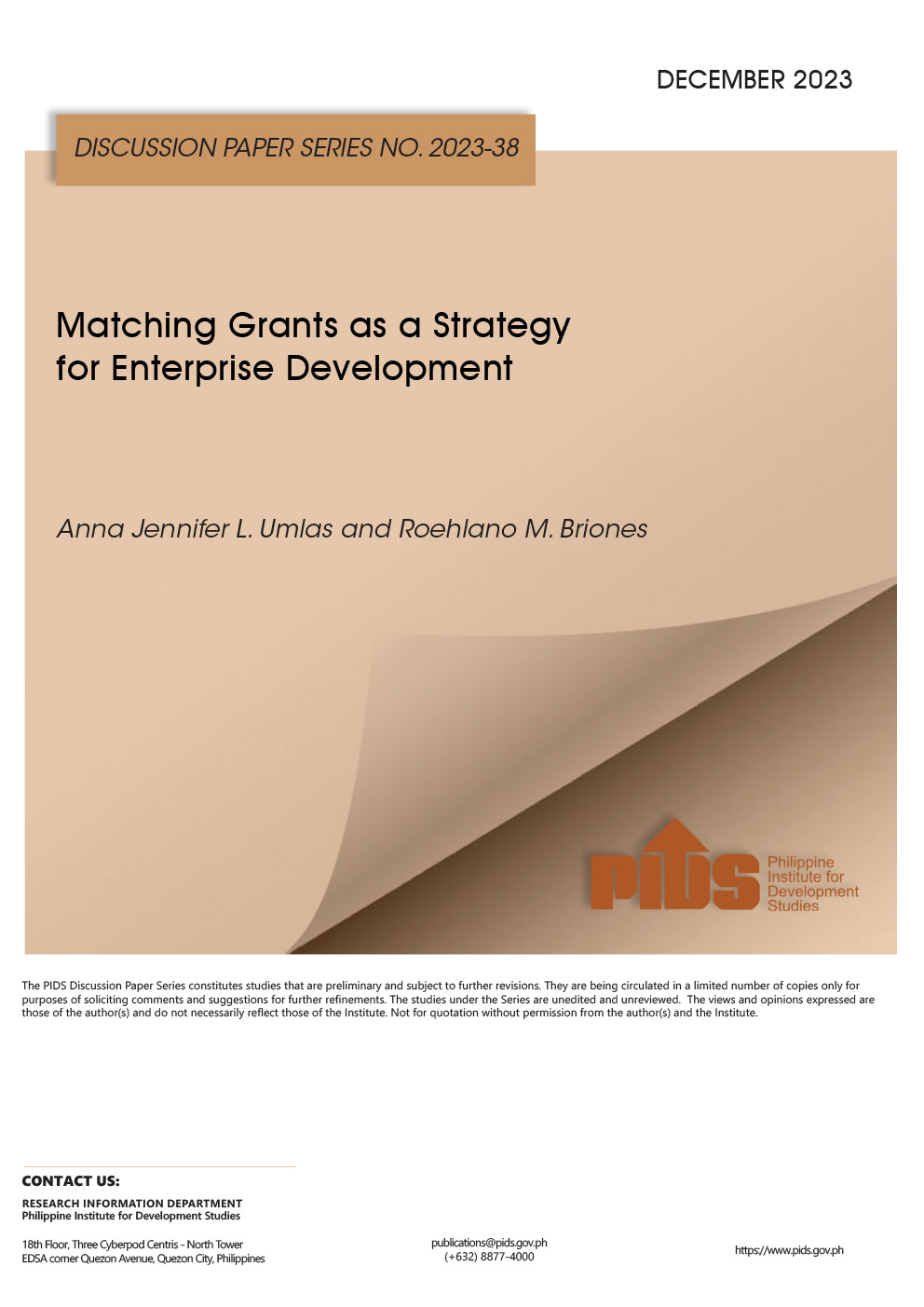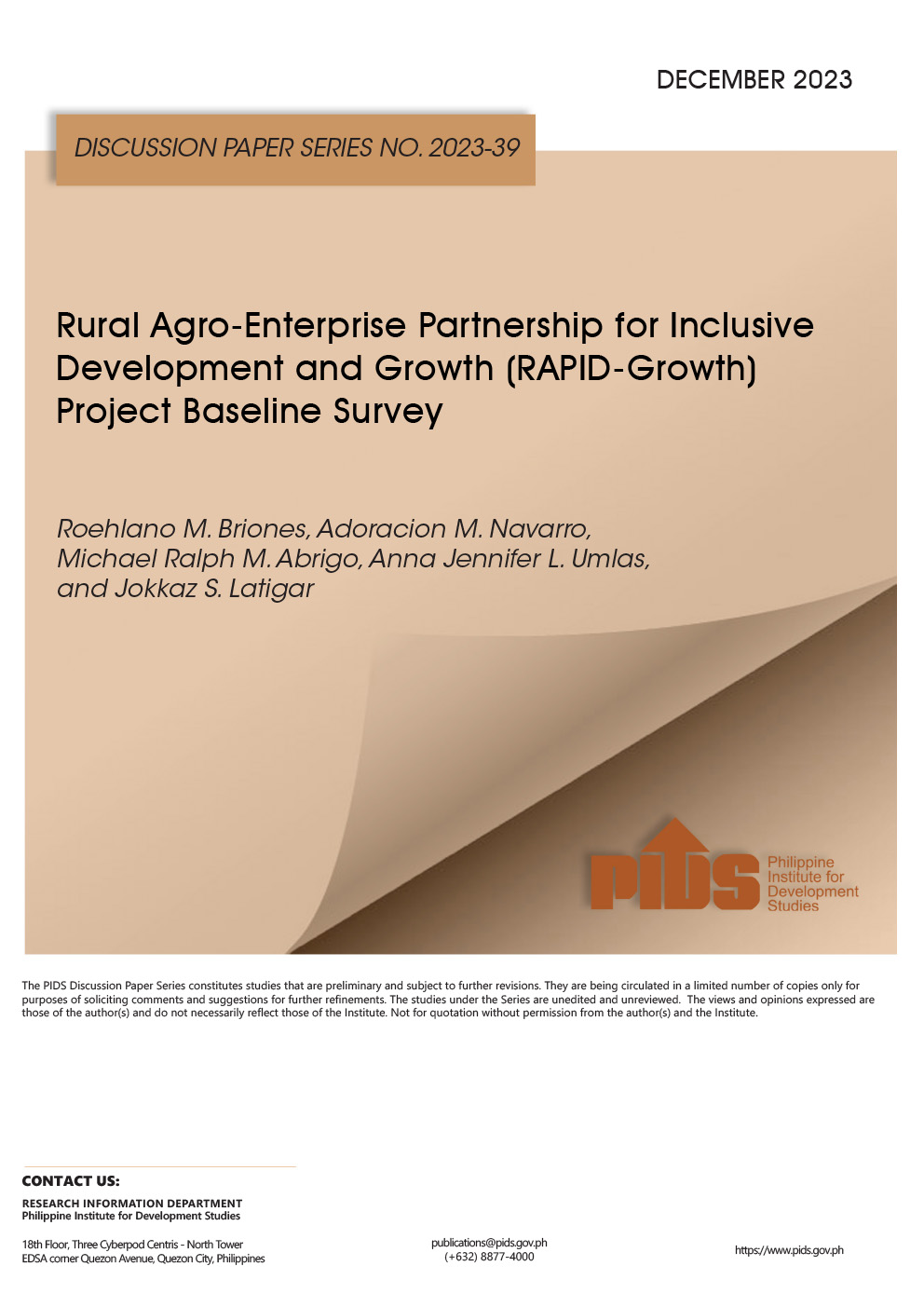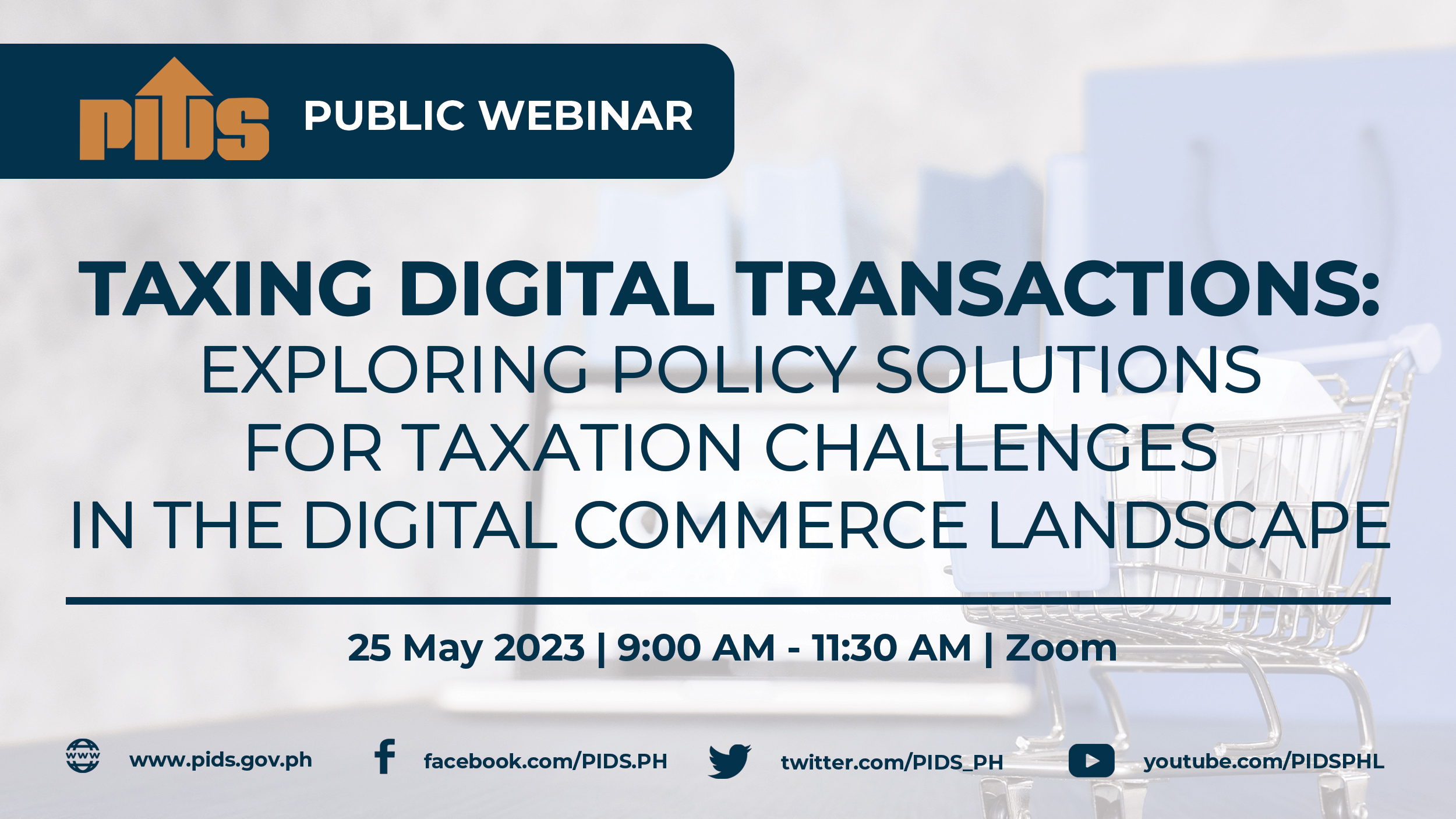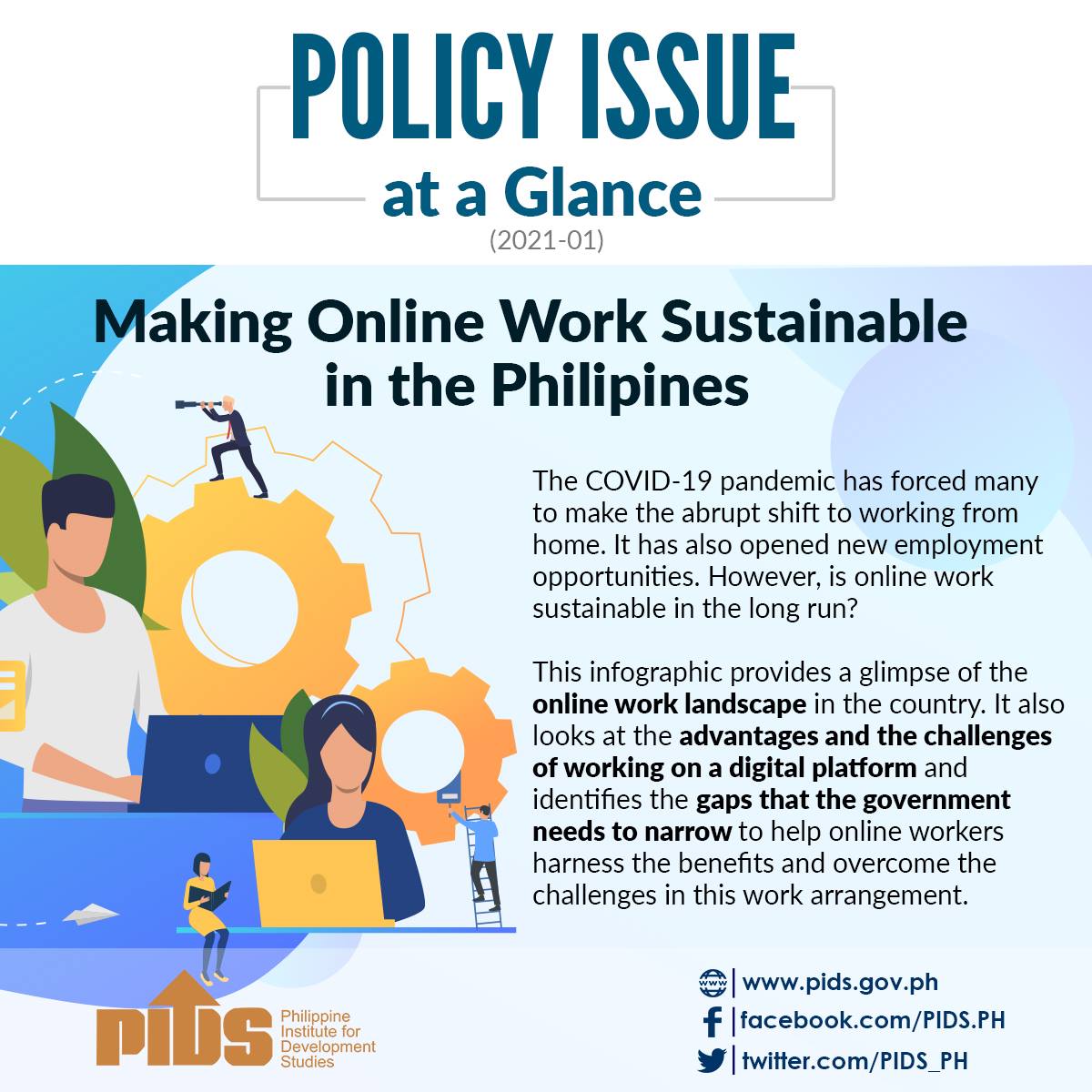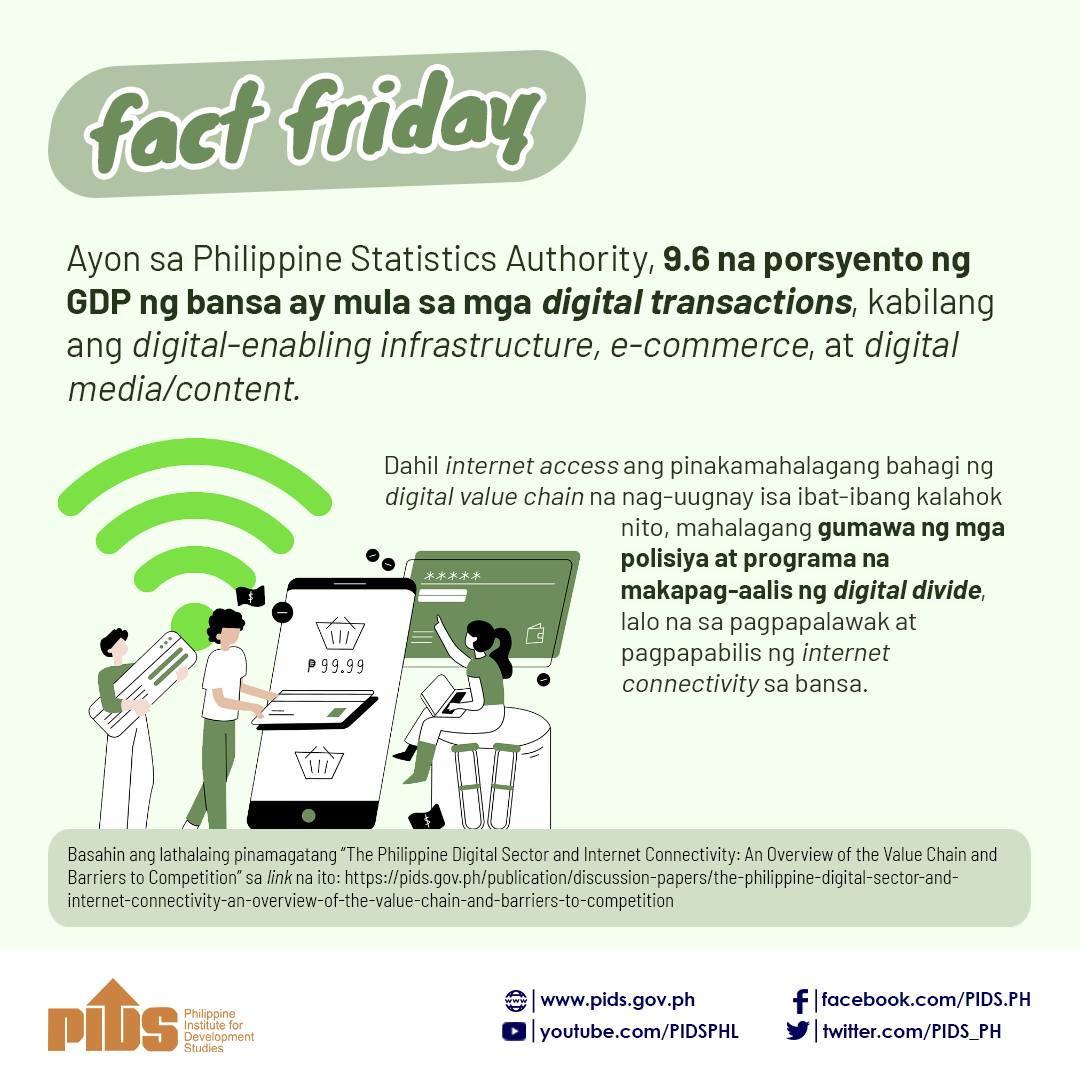AS more Philippine firms shift to the World Wide Web, an online dispute mechanism for cross-border Internet transactions may need to be created in the region, the former head of the semi-government think tank Philippine Institute for Development Studies (PIDS) said.
In a presentation at the Asian Development Bank Institute (ADBI) forum at the second stage of the Asian Development Bank (ADB) Annual Meeting, former PIDS President Mario Lamberte said settling disputes in online transactions is one of the policy issues in the increase in online firms. He was also former ADBI Director for Research.
In his slide, Lamberte said the number of online complained lodged at the Department of Trade and Industry (DTI) showed that as of August 31, the DTI already received 12,630 complaints, significantly higher than the 2,457 complaints received in the whole of 2019.
“As the number of Internet transactions rose significantly, so [did] the number of complaints. [There is a] need to establish an efficient online dispute resolution mechanism,” Lamberte wrote on his slide.
“Regional cooperation for linking online dispute resolution mechanisms to support cross-border Internet transactions in the region [must be created],” he added.
Based on DTI data, Lamberte said the number of Philippine online businesses increased by over 40 times in the past five months to 75,000 after the lockdown from 1,700 before the lockdown.
Lamberte said that out of the 12,630 complaints received by DTI, 7,919 were endorsed and notices to explain were required from 2,366 firms complained at the agency. Only 847 complaints were dismissed.
The shift to Internet-based businesses was one of the coping mechanisms made by Philippine-based firms, according to Lamberte.
“Constrained by mobility and the need to comply with health protocols, many existing and newly established MSMEs [micro, small, and medium enterprises] have turned to the Internet platforms to sell goods and services and buy intermediate goods, learned to use the e-payment system,” Lamberte said.
Apart from settling disputes in online transactions, Lamberte said firms also encountered other policy issues when they shifted to online platforms. One of these is poor Internet connectivity.
Lamberte said this is behind the push to implement a common tower policy nationwide to allow greater access to the Internet by a larger number of Filipinos.
Further, he said these policy issues included the registration of online sellers where sales of over P280,000 became taxable.
Lamberte also said the Central Bank is strongly encouraged to temporarily suspend all fees and charges imposed on the use of online banking platforms or electronic money.
“Covid-19 pandemic will likely accelerate the growth of e-commerce, including cross-border trade —a boon to MSMEs, so legal, regulatory and physical infrastructure should support it, including regional cooperation,” Lamberte said.
“As in previous crises, MSMEs are resilient, and therefore, policy and program support for them must be built on such resiliency. Opportunities [exist] to reshape MSME’s business model including [the] adoption of new technologies,” he added.
Chua: Creative solutions
To this end, Acting Socioeconomic Planning Secretary Karl Kendrick T. Chua said innovative and creative solutions are needed to recover and build resilience from crises.
In a statement, Chua said this can be done through the use of new technologies in developing tools that can make the delivery of public services more effective and efficient.
“What this crisis has made apparent is the need for us to innovate governance and the importance of effective coordination if we hope not just to outlast but also build resilience against adversities such as this. Government must be the one to provide the direction and impetus for innovation to prosper. We must set the example by recalibrating our systems and processes to suit the needs and demands of the new normal,” Chua said.
Chua said helping MSMEs is part of the priorities of the Duterte administration, especially with the passage of key economic reforms such as the Government Financial Institutions Unified Initiatives to Distressed Enterprises for Economic Recovery (GUIDE), Financial Institutions Strategic Transfer (FIST), and the Corporate Recovery and Tax Incentives for Enterprises (CREATE) bills to aid in the recovery of the country.
The Acting National Economic and Development Authority (Neda) chief also underscored the importance of effective coordination and dynamic multistakeholder partnerships to maximize all available resources to respond to the pandemic.
“Building strategic partnerships with different sectors is an effective way to address resource constraints and tap all available wealth of ideas, technologies, expertise, and networks. These are crucial for governance innovation to happen especially in the new normal,” Chua said.

